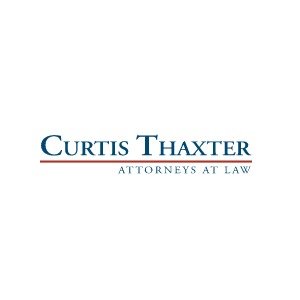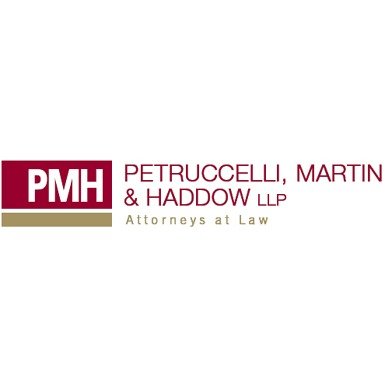Best FDA Law Lawyers in Portland
Share your needs with us, get contacted by law firms.
Free. Takes 2 min.
List of the best lawyers in Portland, United States
About FDA Law in Portland, United States
FDA Law refers to the body of federal regulations and statutes enforced by the United States Food and Drug Administration (FDA) that govern the safety, labeling, manufacturing, and marketing of food, drugs, medical devices, cosmetics, and other consumer products. In Portland, as part of Oregon and the United States, businesses and individuals must comply with FDA rules as well as some state and local requirements. FDA Law is complex and impacts companies involved in developing, producing, distributing, or selling any products regulated by the FDA.
Why You May Need a Lawyer
Several situations make legal advice in FDA Law necessary. If you are starting a business in food production, dietary supplements, pharmaceuticals, medical devices, or cosmetics, complying with FDA rules is critical. You might need a lawyer if you face an FDA investigation, recall notice, import or export issues, warning letters, or inspections. Legal help is valuable for navigating new product approvals, marketing claims, labeling requirements, compliance audits, handling adverse event reporting, or responding to civil and criminal enforcement actions from the FDA or other agencies.
Local Laws Overview
While most FDA regulations are federal and apply throughout the country, Oregon has specific laws that work alongside federal requirements, especially in areas like food safety, cannabis and hemp products, and environmental health. The Oregon Department of Agriculture regulates certain foods and the Oregon Health Authority sets standards for health-related products. In Portland, local ordinances may affect your business operation, waste management from manufacturing, and licensing requirements. All entities must ensure compliance with both federal FDA rules and these state and local requirements to legally operate within Portland.
Frequently Asked Questions
What types of products does the FDA regulate?
The FDA regulates food, drugs, medical devices, cosmetics, dietary supplements, tobacco products, and biologics. If you manufacture or sell these products in Portland, you must comply with FDA rules.
How do I know if my product requires FDA approval?
It depends on the product type. Many drugs and medical devices must receive FDA approval before being marketed, while most foods and cosmetics do not require pre-approval but must comply with labeling and safety regulations.
What are common FDA violations that could affect my business?
Frequent violations include improper labeling, making unapproved health claims, manufacturing without proper authorization, failure to observe good manufacturing practices, and not reporting adverse events.
How do FDA inspections work?
FDA inspections may be routine or triggered by complaints and can involve unannounced visits. Inspectors review your facility, records, production processes, and compliance with regulations. Issues found may result in warning letters or enforcement actions.
What happens if the FDA sends my business a warning letter?
A warning letter details alleged violations and requests correction. It is critical to respond promptly and take corrective actions. Ignoring it can result in product recalls, fines, import bans, or even prosecution.
Is selling CBD products in Portland legal under FDA Law?
The FDA has specific rules on CBD in food, supplements, and cosmetics. While Oregon allows certain cannabis products under state law, FDA restrictions still apply to interstate commerce and labeling claims. Compliance with both state and federal laws is necessary.
Are there special rules for importing or exporting FDA-regulated products?
Yes, imported and exported FDA-regulated products must meet all applicable safety, labeling, and quality standards. The FDA works with U.S. Customs to enforce these requirements at points of entry.
Can I make health claims about my product?
Health-related claims in labeling or advertising must be true, not misleading, and meet specific evidence requirements. Unsubstantiated or unauthorized health claims are common sources of FDA enforcement.
How do I report an adverse event for my product?
FDA requires certain businesses to report adverse events through systems like MedWatch for drugs and devices. Procedures and forms vary by product type, so ensure compliance to avoid penalties.
Do I need a local license to operate my FDA-regulated business in Portland?
Beyond complying with FDA regulations, you may need city or state licenses and permits depending on your business activities. Check with Portland city offices and Oregon state agencies for specific requirements in addition to FDA registration.
Additional Resources
Several organizations and government bodies can help you navigate FDA Law in Portland:
- U.S. Food and Drug Administration (FDA): Provides guidance, regulations, compliance resources, and reporting tools - Oregon Department of Agriculture: Regulates state-specific food production and processing - Oregon Health Authority: Oversees health standards for drugs, devices, and certain foods - Small Business Administration (SBA): Offers assistance with compliance for new and existing businesses - Local Portland business licensing offices: Advise on necessary permits and city rules - Industry associations relevant to your product, such as the Oregon Bioscience Association or Oregon Food Bank, can offer valuable networking and compliance information
Next Steps
If you need legal assistance in FDA Law, start by gathering all documentation about your products, labeling, manufacturing processes, and any correspondence with regulatory agencies. Identify the specific issue you face, such as product approval, responding to enforcement action, or launching a new product. Contact a qualified attorney specializing in FDA Law, ideally with experience in Portland and Oregon regulations. They can help assess your case, guide you through compliance strategies, represent you in agency proceedings, and inform you about ongoing obligations. Early consultation with a specialized FDA Law lawyer is often the best step to avoid costly errors and protect your business interests.
Lawzana helps you find the best lawyers and law firms in Portland through a curated and pre-screened list of qualified legal professionals. Our platform offers rankings and detailed profiles of attorneys and law firms, allowing you to compare based on practice areas, including FDA Law, experience, and client feedback.
Each profile includes a description of the firm's areas of practice, client reviews, team members and partners, year of establishment, spoken languages, office locations, contact information, social media presence, and any published articles or resources. Most firms on our platform speak English and are experienced in both local and international legal matters.
Get a quote from top-rated law firms in Portland, United States — quickly, securely, and without unnecessary hassle.
Disclaimer:
The information provided on this page is for general informational purposes only and does not constitute legal advice. While we strive to ensure the accuracy and relevance of the content, legal information may change over time, and interpretations of the law can vary. You should always consult with a qualified legal professional for advice specific to your situation.
We disclaim all liability for actions taken or not taken based on the content of this page. If you believe any information is incorrect or outdated, please contact us, and we will review and update it where appropriate.












